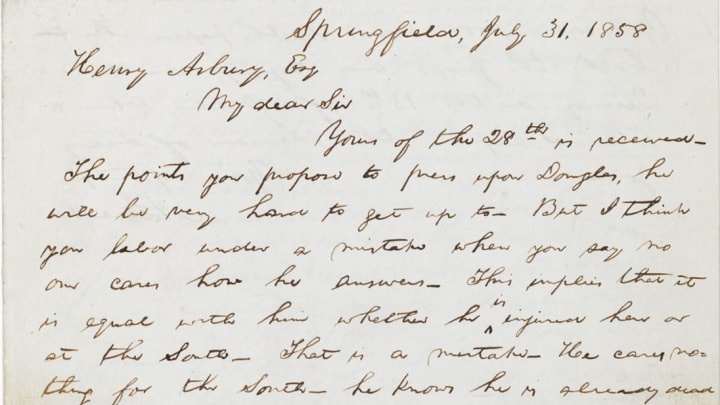The Lincoln-Douglas debates of 1858, in which future president Abraham Lincoln spent seven debates discussing the issue of slavery with incumbent U.S. senator Stephen Douglas, paved the way for Lincoln’s eventual ascent to the presidency. Now part of that history can be yours, as the AP reports.
A signed letter from Lincoln to his friend Henry Asbury dated July 31, 1858 explores the “Freeport Question” he would later pose to Douglas during the debates, forcing the senator to publicly choose between two contrasting views related to slavery’s expansion in U.S. territories: whether it should be up to the people or the courts to decide where slavery was legal. (Douglas supported the popular choice argument, but that position was directly counter to the Supreme Court's Dred Scott decision.)

In the letter, Lincoln was responding to advice Asbury had sent him on preparing for his next debate with Douglas. Asbury essentially framed the Freeport Question for the politician. In his reply, Lincoln wrote that it was a great question, but would be difficult to get Douglas to answer:
"You shall have hard work to get him directly to the point whether a territorial Legislature has or has not the power to exclude slavery. But if you succeed in bringing him to it, though he will be compelled to say it possesses no such power; he will instantly take ground that slavery can not actually exist in the territories, unless the people desire it, and so give it protective territorial legislation."
Asbury's influence didn't end with the debates. A founder of Illinois's Republican Party, he was the first to suggest that Lincoln should run for president in 1860, and secured him the support of the local party.
The letter, valued at $500,000 to $700,000, is up for sale as part of a books and manuscripts auction that Christie’s will hold on December 5.
[h/t Associated Press]
